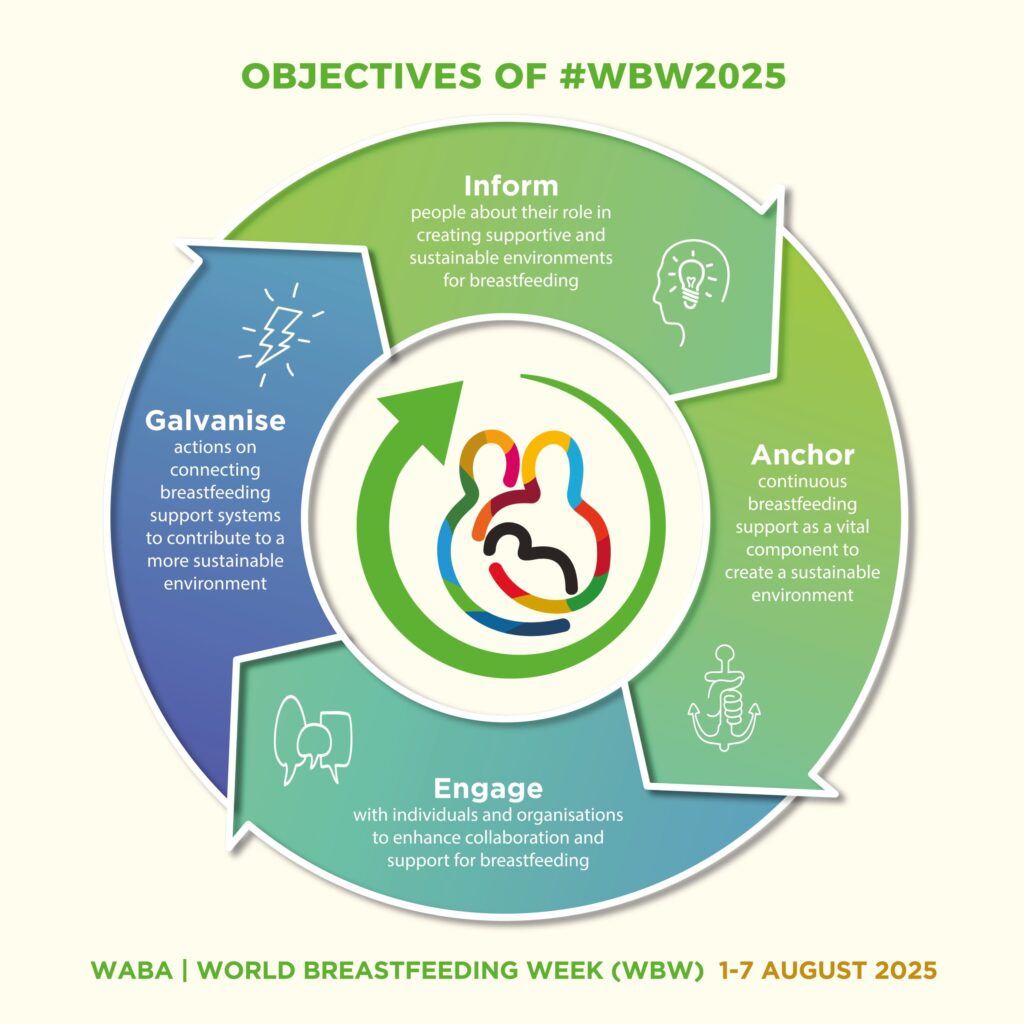Each year, World Breastfeeding Week shines a light on the importance of breastfeeding – not just for individual families, but for our collective future. The 2025 theme, #PrioritiseBreastfeeding, invites us to think more broadly about how we can create sustainable support systems that benefit babies, parents, workplaces, and the planet.
At The Nourish Consultancy, we believe that meaningful support for breastfeeding must include the places where many of us spend a significant portion of our lives – our workplaces.
Why breastfeeding matters in the workplace
Breastfeeding is a public health issue, an equality issue, and – increasingly – an environmental issue. It provides lifelong health benefits for both babies and parents, reduces healthcare costs, and plays a role in sustainability by reducing reliance on single-use feeding products and formula packaging.
Yet despite these benefits, many parents find their breastfeeding journeys cut short when they return to work. Lack of privacy, rigid schedules, limited awareness, and insufficient support leave many feeling they must choose between their career and their ability to continue feeding.
It doesn’t have to be this way.

How employers can prioritise breastfeeding
1. Create a culture of openness
Breastfeeding and expressing milk should be normalised at every level of the organisation. This means having clear, visible policies and training for managers to ensure they understand the needs of breastfeeding employees. Creating a culture of respect and flexibility starts with open conversations.
2. Provide practical spaces and time
A clean, private, and comfortable space to express milk (that isn’t a toilet!) is essential. Employers should also support flexible scheduling so parents can take pumping breaks as needed, without penalty or stigma.
3. Make breastfeeding part of parental return planning
Returning to work after having a baby is a major transition. Including breastfeeding in return-to-work planning shows respect for a parent’s feeding choices. Consider asking: “How can we support you to continue breastfeeding or expressing when you return?”
4. Embrace wearable technology and innovation
With the rise of wearable breast pumps, many parents can now express discreetly while working. Supporting parents to use this technology — by allowing flexible break times and relaxing uniform or dress codes — can make a significant difference.
5. Don’t forget non-breastfeeding parents
Not every parent breastfeeds or is able to. Inclusivity matters. Asking formula-feeding parents “How can we support your feeding choices?” helps everyone feel respected and empowered.
A small change can have a big impact
Employers who prioritise breastfeeding not only retain valuable talent — they foster loyalty, boost morale, and support a healthier, more inclusive workplace. It’s an investment that pays off in more ways than one.
As we mark World Breastfeeding Week, let’s ask: What can I do — as a leader, manager, or colleague — to prioritise breastfeeding and nourish the families in my workplace?
Because supporting breastfeeding is not just a personal matter. It’s a workplace issue. A human rights issue. And it’s a collective responsibility.

